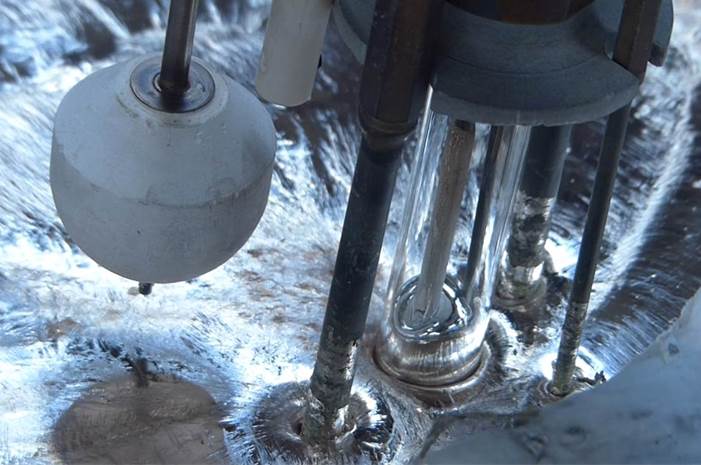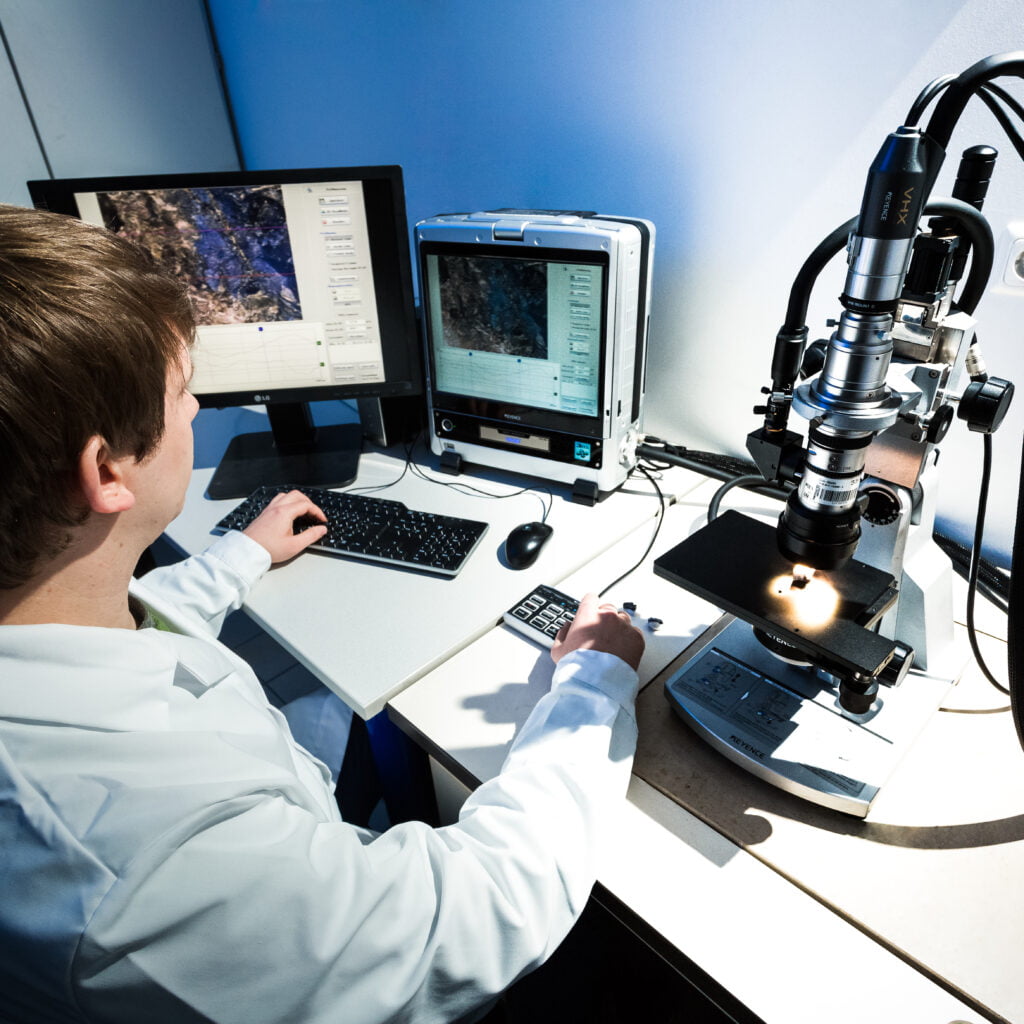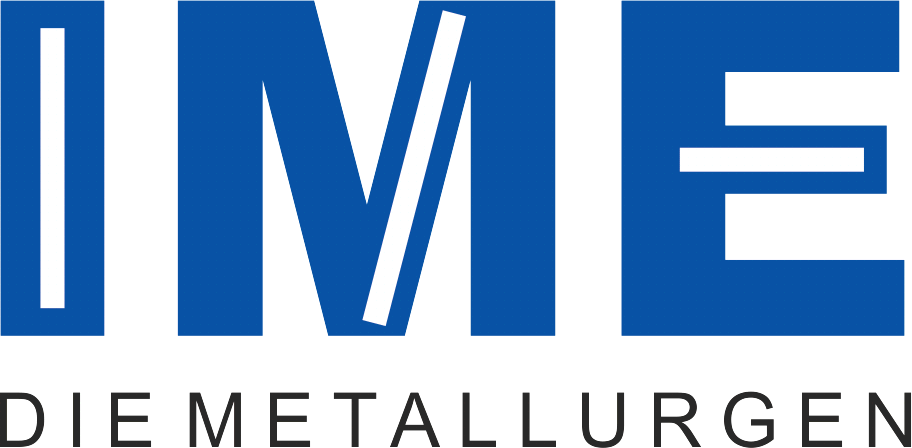Research » Aluminum Recycling and Melt Purification
The working group focuses on the recycling of aluminium scraps via under salt or salt-free processes. Top Blown Rotary Converter (TBRC) in lab and demo-scale is used to perform the experiments. Efficient coagulation during recycling is also studied by using different salt compositions. In addition, thermal treatment of organic containing materials is being investigated to find an optimum process which is a combination of pre-treatment and recycling.
Moreover, the working group performs investigations about the melt cleanliness by using different removal and detection technologies to meet the high requirements of the product and material properties. Fundamental researches on particle behaviour in melts such as settling and agglomeration are also on-going to gain more knowledge about particles. Improvement of existing technologies and understanding of the mechanisms are main targets of the activities.
Contact:
Alumni:
- Dr.-Ing. Cong Li
- Dipl.-Ing. Jeraldiny Becker
- M.Sc. Tom Gertjegerdes
- Dr.-Ing. Mertol Gökelma
- Dr.-Ing. Songül Sieben geb. Gül
- Dr.-Ing. Regina Dittrich
- Dr.-Ing. Abyl Sydykov
- Dr.-Ing. Marion Thoraval
- Dr.-Ing. Marina Gnatko
- Dipl.-Ing. Maik Ridderbusch
- Dr.-Ing. Roger Sauermann
- Dr.-Ing. Tony Noll
- Dr.-Ing. Christoph Kräutlein
- Dr.-Ing. Katherina Jessen geb. Kaplan
- Dr.-Ing. Benjamin Jaroni
- Dipl.-Ing. Ursula Maiworm
- Dipl.-Ing. Traute Köther
- Dr.-Ing. Alf Niederle

Project List
- CO2-free aluminium production
- Improvement of the energy and resource efficiency of the recycling of organically contaminated aluminium scrap
- Techno-economic analysis of a reduction of the KCI content in the molten salt in the Al recycling
- Impact of thermo-physical properties on three-phase-interactions of molten salt, liquid metal and non-metallic inclusions
- Investigation and evaluation of metallurgy for the internal recycling of fine-grained aluminum foundry material
- Minimization of aluminum loss by avoiding wet-chemical salt slag preparation – production-integrated separation of the metal oxides and direct molten liquid reuse of the molten salt and re-use of the aluminum
- Refining of aluminum alloys – Equilibria and kinetics of crystallization of intermetallic compounds from Al-Si-Fe-X melts (X: Mg, Mn, Ti)
- MOLTEN ALUMINIUM PURIFICATION – Purification by formation and removal of inter-metallics
- Systematic investigation of the influencing variables for the optimization of the metal waste yield during the salt melting of aluminum scrap
- New process for melting very finely divided aluminum precursors which are difficult to process, as well as checking the transferability of the process to magnesium precursors
- Development of recycling concepts for the processing and utilization of scrap from aluminum special materials (aluminum foams, special alloys, metal composites, iron-containing scrap)
Publications
| Year | Publications |
|---|---|
| 2020 |
article in scientific journal
The Minerals, Metals & Materials Society, 2020 DOI: 10.1007/s11837-020-04268-4
|
| 2019 |
congress or congress paper
Proceedings of the 10th European Metallurgical Conference (EMC) 2019, June 24-26, Düsseldorf, Germany
|
| 2019 |
congress or congress paper
Proceedings of the 10th European Metallurgical Conference (EMC) 2019, June 24-26, Düsseldorf, Germany
|
| 2019 |
congress or congress paper
Light Metals 2019, pp. 1033-1039, DOI: 10.1007/978-3-030-05864-7_126
|
| 2018 |
congress or congress paper
Light Metals 2018, DOI: 10.1007/978-3-319-72284-9_146
|
| 2017 |
congress or congress paper
Light Metals 2017, TMS 2017, 146rd Annual Meeting, San Diego, USA, pp. 771-776, DOI: 10.1007/978-3-319-51541-0_133
|
| 2016 |
congress or congress paper
TMS 2016 Light Metals, pp. 843-848, Nashville, USA
|
| 2015 |
congress or congress paper
European Aluminium Congress 2015, Düsseldorf
|
| 2013 |
poster
Titanium Europe 2013, 05.-07.03.2013, Hamburg (Germany)
|
| 2007 |
article in scientific journal
Advances in Materials Science, Vol. 7, No. 4, 2007, S. 81 – 88
|


